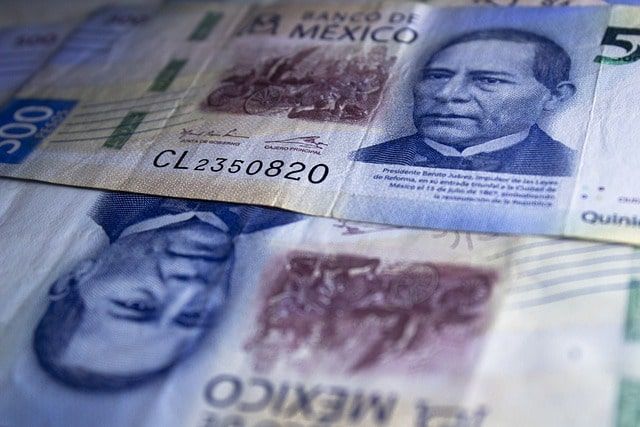Major tax reform is necessary: experts
The construction of an authentic Rule of Law is key for a democratic society. A hesitant recovery. The role of the Executive Branch as the rector of financial policies. The "precious time" to promote an economic reorientation program is being lost.

It is important to reestablish economic growth that is more inclusive, sustainable and contributes to consolidating our democratic institutions; we must move towards a strong and social State that has universal social protection for Mexicans in the areas of work, education, health, housing, and family life as its central motto. If this is achieved, the goal of putting Mexico's development back on track in this challenging century will be achieved, according to UNAM experts.
At the round table "Renewing policies for a new course of development", organized by the Faculty of Law (FD), the Secretary-General of the National University, Leonardo Lomelí Vanegas, stressed that this course must be socially and environmentally sustainable. He is also a member of the New Course of Development Group of this university -formed in 2009- said that the main concern of this group is to elaborate diagnoses and put forward proposals to put progress back on track.
He emphasized the need for counter-cyclical macroeconomic policies to stimulate the economy during periods of deceleration, as well as expansive fiscal and monetary policies that allow for continued growth when the pace begins to slow down. This requires far-reaching fiscal reform.
In the Group's most recent work, "Renewing Policies for a New Course of Development in Mexico" (August 2021), it is made clear that more investment in infrastructure and more social spending is needed. "We urgently need a robust public health system that can be financed with state resources, with universal coverage and a comprehensive set of benefits. That costs money and that is why we emphasize the need for a fiscal reform".
In his turn, the director of the FD, Raúl Contreras Bustamante, pointed out that the construction of an authentic Rule of Law is a key element for our democratic society since, without public policies that provide certainty and legal security to social relations, it will not be possible to build the elements that drive national development and attract greater private investment. Public policies require the provision of sufficient economic resources, political will, and vision because it is not enough to design them adequately, based on a real diagnosis of the problems, if they can be inefficient due to the lack of an adequate budget.
Professor Emeritus of the School of Economics and coordinator of the Group, Rolando Cordera Campos, said that the combination of slow growth and recessive or depressive tendencies results in a worrisome panorama of acute inequality and mass poverty. Such was the panorama when the great political upheaval of 2018 took place.
The new government was inaugurated with a cautious, conservative policy of economic and fiscal restraint and no growth. Thus we received a new impact, bigger, more harmful, and dangerous for human existence: the pandemic. The governments of the world decided to slow down the economy and "we will enter a formidable fall of eight percent in 2020".
Today, the economist noted, we have a faltering recovery. "In the text, we recognize that this is happening, but at the same time it should be seen as a recovery that needs additional pillars, public action, and a lot of rational policy for a new course of political evolution in the 21st century." We call for immediate actions to rescue the thousands or millions of people affected by the pandemic, the economic downturn, health, employment, unemployment, and even the deterioration or loss of productive forces.
In the document, available on the Group's web page (http://www.nuevocursodedesarrollo.unam.mx/), we argue the need, based on a major national investment program, to recover, rehabilitate and vindicate our tradition as a mixed economy, to ensure fundamental macroeconomic balances and the promotion of industrial renewal, the use of our profits as a large open economy linked to that of the United States, which will allow us to think about how to channel growth that exceeds four percent as soon as possible if we want to employ the Mexicans who require it.
Professor Emeritus of the FD, Sergio García Ramírez, moderating the distance session, emphasized that the University of the Nation, plural, open to all currents of thought, constantly strives for the progress of Mexico, in freedom and justice for the good of the country by promoting the great causes of the people and serving the Mexican community. This is the distinctive sign of this university; "it was so yesterday and continues to be so now in a clear and luminous manner".
Today, he added, we are called upon to promote a new course of progress that will allow us to face major problems and provide rational and practicable solutions in favor of Mexican society. We are suffering from enormous shortages, old inequality that is deepening thanks to the pandemic, and this requires a great understanding of the problems and possible solutions, which can be found in a new social pact, in a commitment to the future.
Elvia Arcelia Quintana Adriano, also an emeritus member of the FD, emphasized that the Republic's three branches of government balance the scales. The Executive, "administrator of the great enterprise of this Mexico", at the same time has three great fields of activity: central, decentralized, and deconcentrated administration; it must be the rector of economic and financial policies. However, the economy and commercial activity do not flow if there are no good channels through which they move; instead of facilitating their movement, they hinder it. That way, we can have the best economic policy, but it will not move forward.
José Andrés de Oteyza y Fernández, also a member of the Group and former Mexican Ambassador to Canada, said that instead of riding the international expansionist wave, we have clung to the most conservative and traditional concepts of macroeconomic financial stability and fiscal balance. The economist asserted that "precious time" is being lost to promote a medium and long-term economic and social rescue, recovery, and reorientation program.
Tax reform essential for Mexico's post-pandemic recovery
In 2020 Mexico allocated 1.4 percent of Gross Domestic Product (GDP) to pensions for the elderly, increased spending on health, loans to small and medium-sized enterprises, infrastructure, security and education programs, unemployment subsidies to workers who had a mortgage, among other measures which helped the fall of this indicator to be 20 percent and not deeper. This "parachute" was very successful, as it allowed close to 50 million people to receive money during the COVID-19 pandemic, said Óscar Ugarteche Galarza, an academic at UNAM's Institute of Economic Research.
However, for the country to continue with its recovery, fiscal reform is needed that establishes wealth taxes and a tax scale for the highest income sectors, as well as including the financial sector, said the also member of the National System of Researchers (SNI). We have a fiscal problem that must be solved so that its contribution rises to 25 percent of the GDP and the economy has enough resources to allow the State to promote the economy to move forward, he said.
"My vision is that we do have to charge taxes to those who do not pay them, but we also have to put some wealth taxes, a scale of taxes to the highest income sectors, what is called rental income, and for stock profitability. Almost all the financial sector is exempt from taxes", he assured during the distance conversation "Fall and recovery in post-pandemic".
Giving grants and loans to some sectors of the population, he reiterated, prevented a greater contraction of the GDP, which could have reached up to 30 percent, and allowed creating a sense of normality that is not perceived in other countries. The specialist in Latin American Financial Integration and Global Political Economy estimated that Mexico's GDP could reach the level it had before the SARS-CoV-2 health emergency in the first quarter of 2023. However, he warned, economic recovery is slowing down worldwide.
Studies of the recovery of other countries in Latin America and various regions of the world conclude that nations that grew little before the pandemic recovered minimally and those that managed to do so quickly, did so in an accelerated manner. "Mexico in 2019 had no growth, that drop impacts the recovery in 2021. If Mexico had come with a growth rate of three or four percent, before 2019, that would have given it a more accelerated recovery dynamic," he added in the discussion moderated by IIEC researcher Patricia Rodríguez López.
Ugarteche Galarza pointed out that Mexico's dependence on the U.S. economy -to which it directs close to 80 percent of its exports- also affects the recovery. "Mexico has not recovered, because of the size of the fall and because the external engines are at a standstill. As long as they don't walk, this doesn't walk." Mexico has to shore up its internal growth; it requires employment policies, but if there is no dynamism in the economy it is not possible to generate new jobs. This will affect young people who will find it difficult to enter the labor market.




